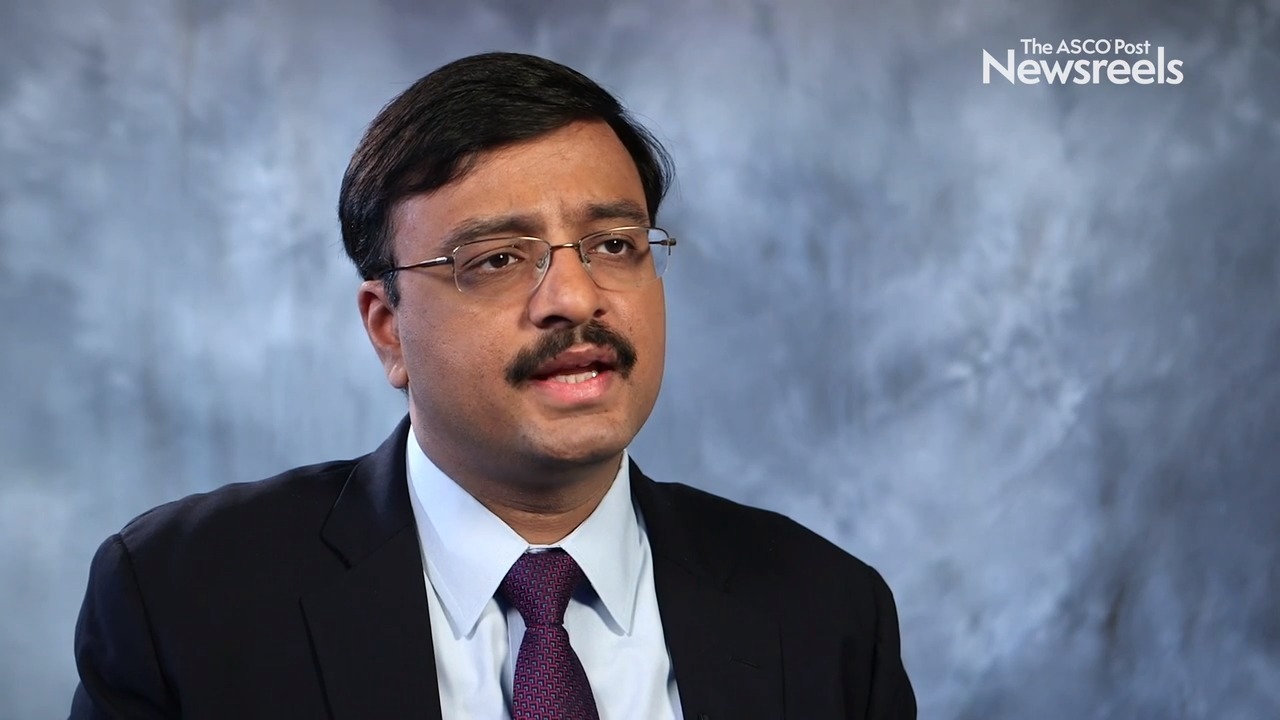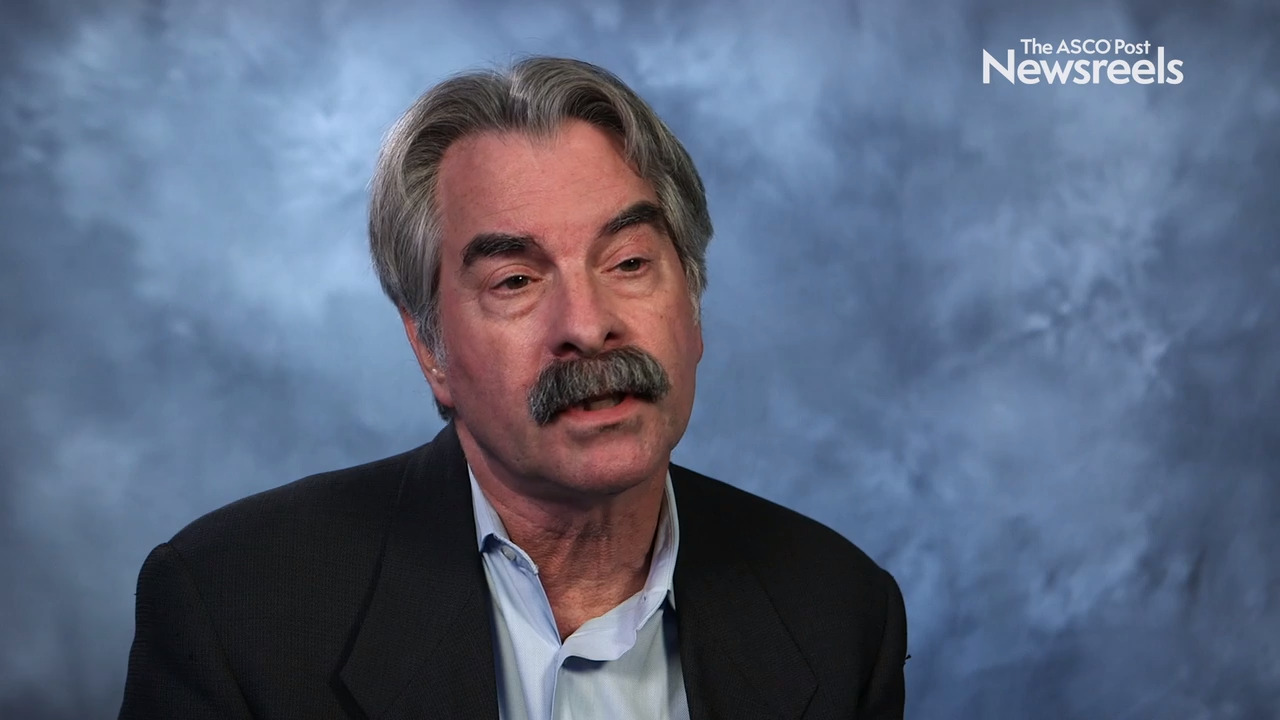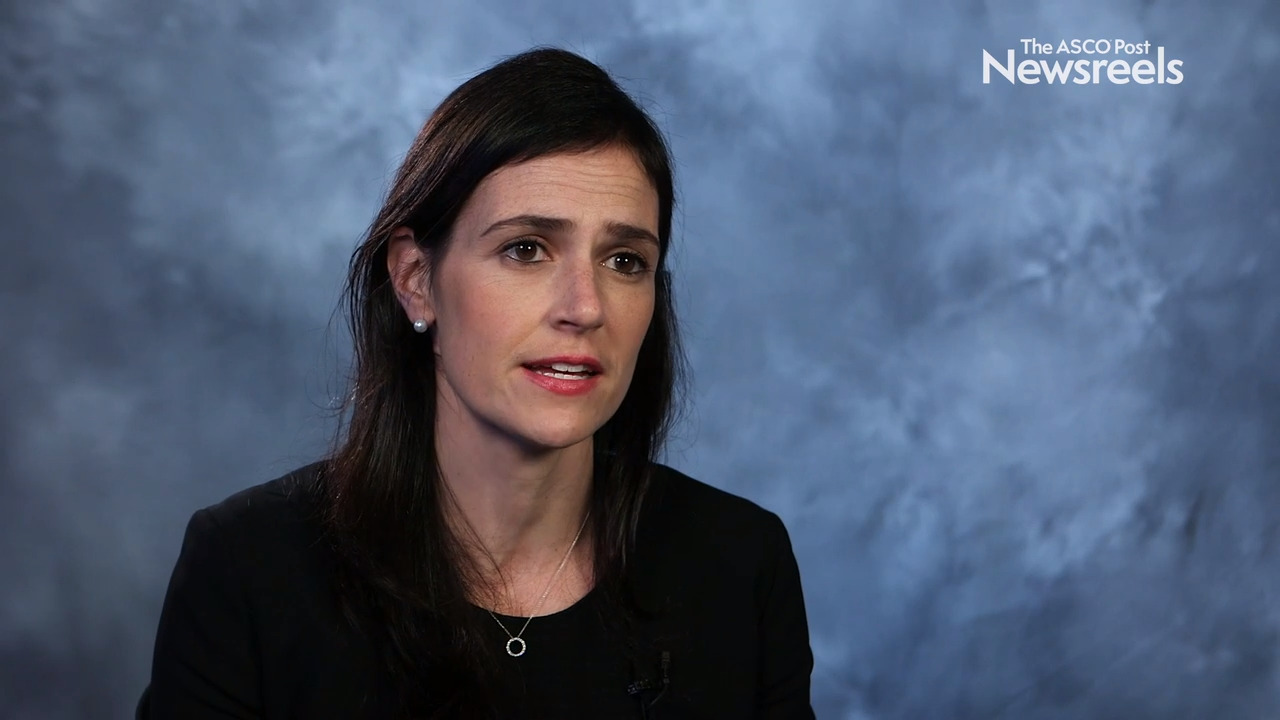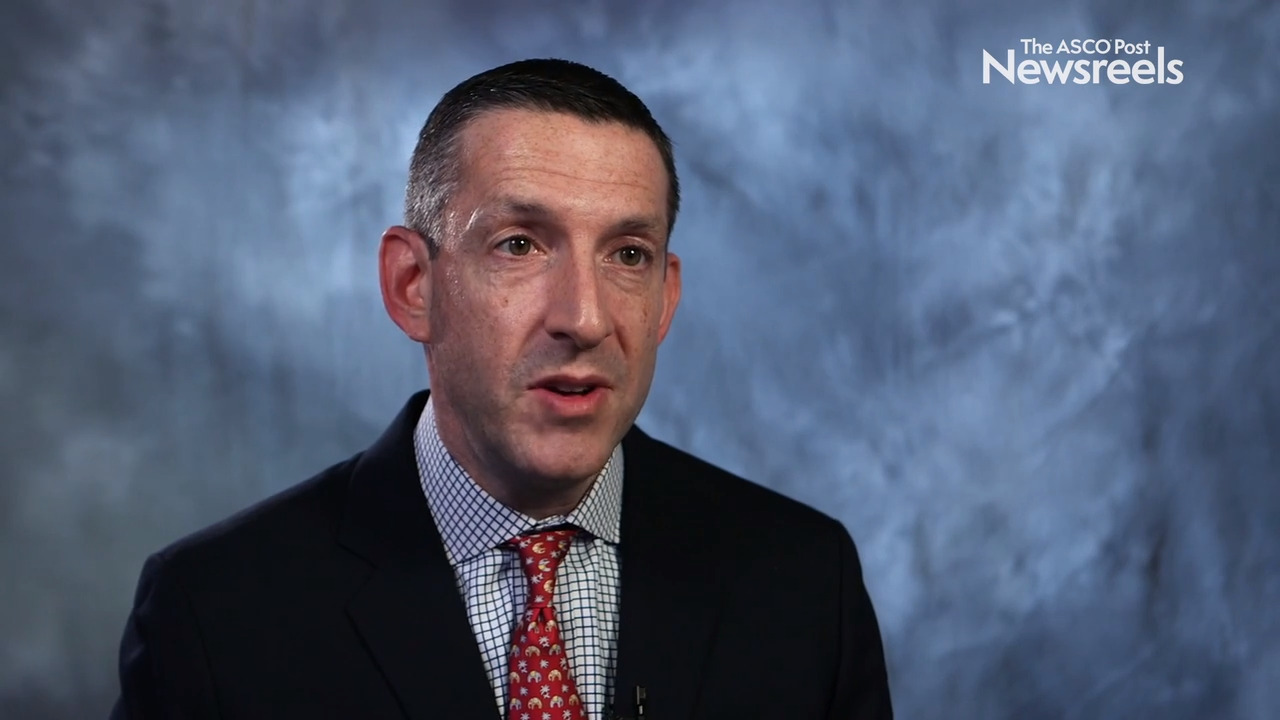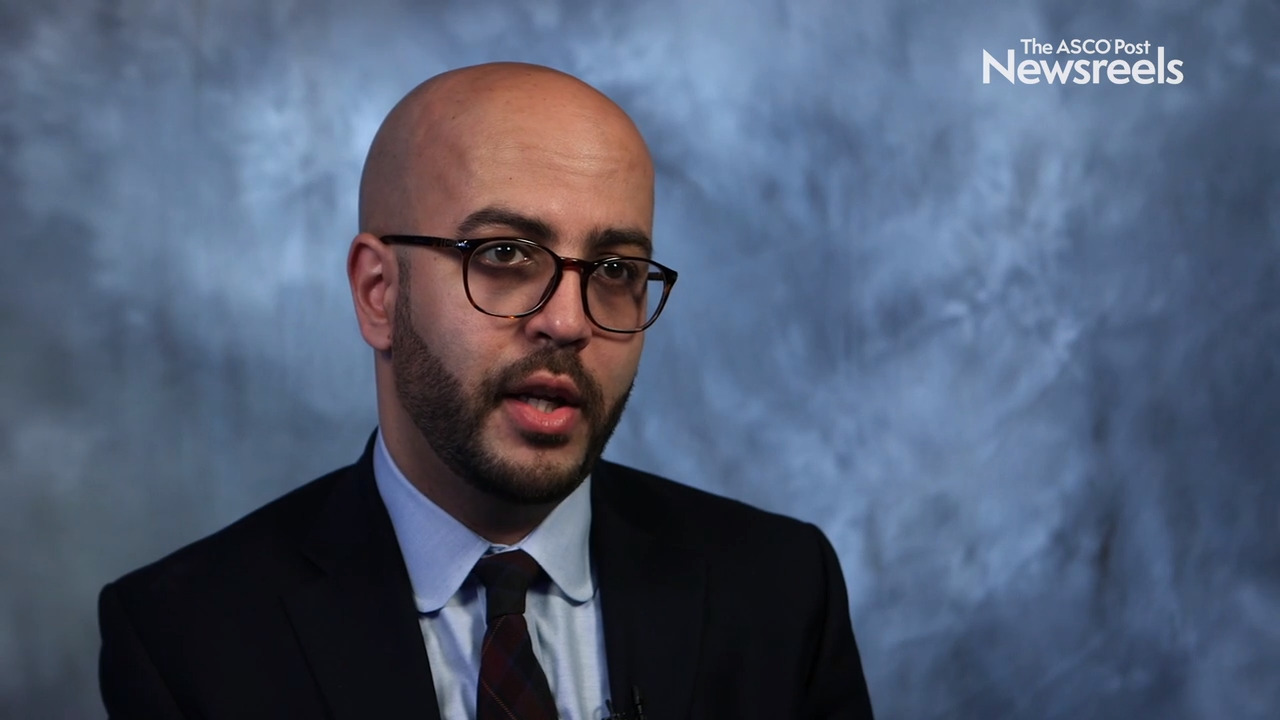Edward A. Stadtmauer, MD, on Advanced Multiple Myeloma and Sarcoma: First-in-Human Assessment of CRISPR-Edited T Cells
2019 ASH Annual Meeting & Exposition
Edward A. Stadtmauer, MD, of the University of Pennsylvania Abramson Cancer Center, discusses phase I results of immune cells, modified with CRISPR/Cas9 technology, and infused in three patients (two with multiple myeloma and one with sarcoma). Researchers observed the cells expand and bind to their tumor targets with no serious side effects (Abstract 49).
Nitin Jain, MD, of The University of Texas MD Anderson Cancer Center, discusses findings from two studies showing that the combination of ibrutinib and venetoclax is an effective chemotherapy-free oral regimen for patients with high-risk, previously untreated chronic lymphocytic leukemia (Abstract 34).
Jerald P. Radich, MD, of the Fred Hutchinson Cancer Research Center, discusses a gene-expression model that distinguishes patients with chronic myeloid leukemia who achieved a deep molecular response from those with a poor response to treatment. This work could yield new therapeutic targets that could potentially turn a poor responder into a good responder who might even achieve treatment-free remission (Abstract 665).
Jennifer Crombie, MD, of Dana-Farber Cancer Institute, discusses early study results which showed that duvelisib plus venetoclax showed activity in patients with relapsed or refractory chronic lymphocytic leukemia/small lymphocytic lymphoma, with no dose-limiting toxicities observed (Abstract 1763).
Mikkael A. Sekeres, MD, of the Cleveland Clinic, discusses results of a phase Ib study of glasdegib in combination with azacitidine, which showed activity in patients with untreated myelodysplastic syndromes, acute myeloid leukemia, and chronic myelomonocytic leukemia who are ineligible for intensive chemotherapy (Abstract 177).
Mark Bustoros, MD, of Dana-Farber Cancer Institute, discusses phase II study results showing that the combination of ixazomib, lenalidomide, and dexamethasone is effective in patients with high-risk smoldering disease, with a high response rate, convenient schedule, and manageable toxicity. Longer follow-up for disease outcome is ongoing (Abstract 580).
